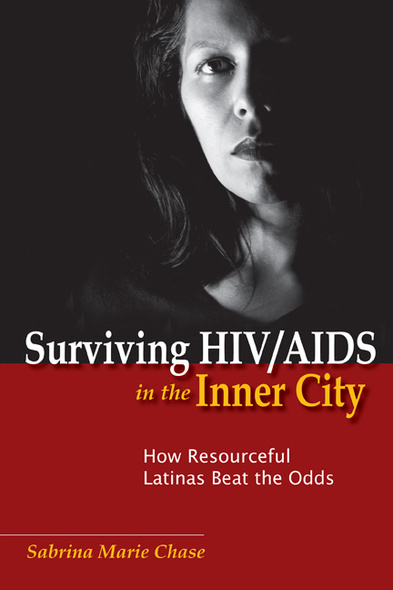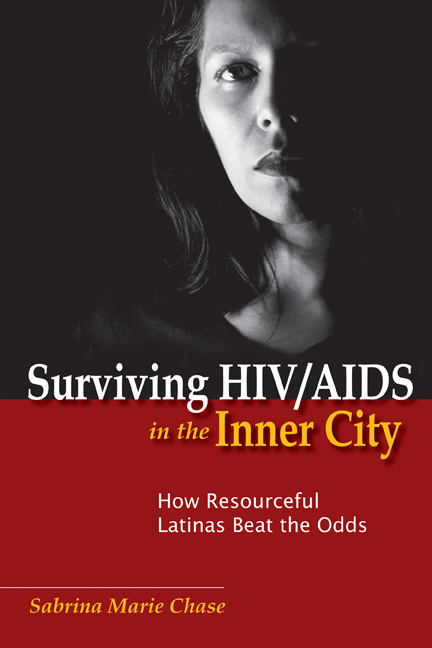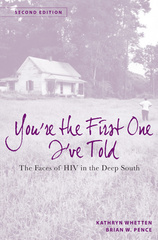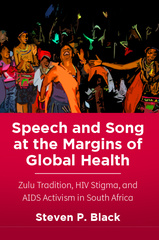
228 pages, 6 x 9
3 tables and 8 figures
Paperback
Release Date:22 Mar 2012
ISBN:9780813553559
Hardcover
Release Date:19 Jan 2011
ISBN:9780813548920
Surviving HIV/AIDS in the Inner City
How Resourceful Latinas Beat the Odds
SERIES:
Studies in Medical Anthropology
Rutgers University Press
Surviving HIV/AIDS in the Inner City explores the survival strategies of poor, HIV-positive Puerto Rican women by asking four key questions: Given their limited resources, how did they manage an illness as serious as HIV/AIDS? Did they look for alternatives to conventional medical treatment? Did the challenges they faced deprive them of self-determination, or could they help themselves and each other? What can we learn from these resourceful women?
Based on her work with minority women living in Newark, New Jersey, Sabrina Marie Chase illuminates the hidden traps and land mines burdening our current health care system as a whole. For the women she studied, alliances with doctors, nurses, and social workers could literally mean the difference between life and death. By applying the theories of sociologist Pierre Bourdieu to the day-to-day experiences of HIV-positive Latinas, Chase explains why some struggled and even died while others flourished and thrived under difficult conditions. These gripping, true-life stories advocate for those living with chronic illness who depend on the health care "safety net." Through her exploration of life and death among Newark's resourceful women, Chase provides the groundwork for inciting positive change in the U.S. health care system.
Based on her work with minority women living in Newark, New Jersey, Sabrina Marie Chase illuminates the hidden traps and land mines burdening our current health care system as a whole. For the women she studied, alliances with doctors, nurses, and social workers could literally mean the difference between life and death. By applying the theories of sociologist Pierre Bourdieu to the day-to-day experiences of HIV-positive Latinas, Chase explains why some struggled and even died while others flourished and thrived under difficult conditions. These gripping, true-life stories advocate for those living with chronic illness who depend on the health care "safety net." Through her exploration of life and death among Newark's resourceful women, Chase provides the groundwork for inciting positive change in the U.S. health care system.
In this original and interdisciplinary book, Chase illuminates the unequal treatment faced by the Puerto Rican women she studied and creates compassion for the hardships that they faced.
Medical anthropologist Sabrina Marie Chase offers a rich account of HIV-positive Puerto Rican women's experiences. Poor HIV-positive women must be resourceful to survive. We learn from their brave efforts how our current healthcare system and related social services fail vulnerable people living with HIV/AIDS, especially marginalized women of color.
SABRINA MARIE CHASE is a medical anthropologist specializing in family medicine and racial and ethnic health care disparities. She is a health care researcher at the Robert Wood Johnson Medical School.
List of Figures and Tables
Acknowledgments
Abbreviations
1. Torn between Structure and Agency
2. Resourceful Women
3. Unpacking Newark's Epidemic
4. Understanding HIV
5. Managing Social Services
6. Working the Clinics
7. Taking Care of Yourself
8. Learning from Resourceful Women
Epilogue: Sorrows and Joys
Reference List
Index
About the Author
Acknowledgments
Abbreviations
1. Torn between Structure and Agency
2. Resourceful Women
3. Unpacking Newark's Epidemic
4. Understanding HIV
5. Managing Social Services
6. Working the Clinics
7. Taking Care of Yourself
8. Learning from Resourceful Women
Epilogue: Sorrows and Joys
Reference List
Index
About the Author






